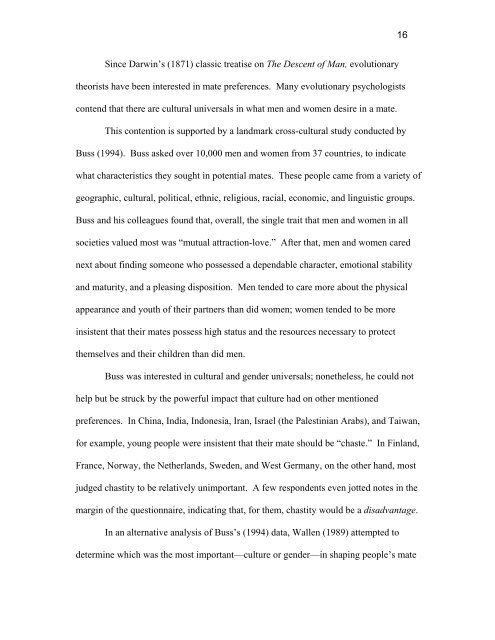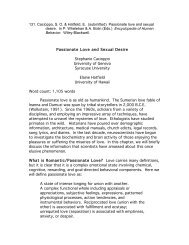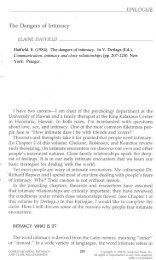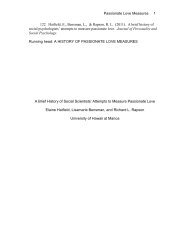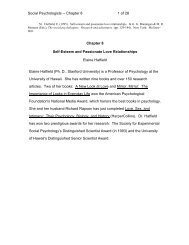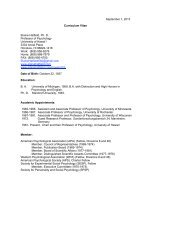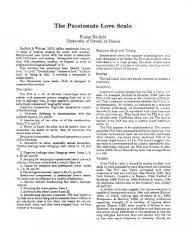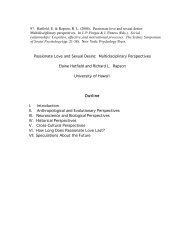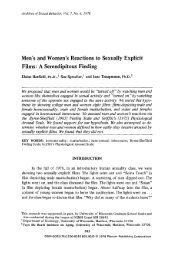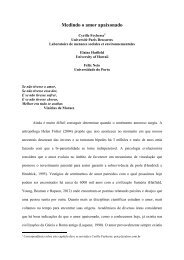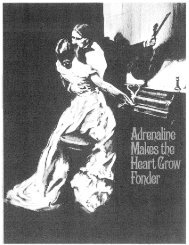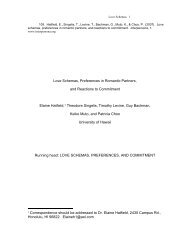Passionate Love and Sexual Desire - Elaine Hatfield
Passionate Love and Sexual Desire - Elaine Hatfield
Passionate Love and Sexual Desire - Elaine Hatfield
Create successful ePaper yourself
Turn your PDF publications into a flip-book with our unique Google optimized e-Paper software.
16Since Darwin’s (1871) classic treatise on The Descent of Man, evolutionarytheorists have been interested in mate preferences. Many evolutionary psychologistscontend that there are cultural universals in what men <strong>and</strong> women desire in a mate.This contention is supported by a l<strong>and</strong>mark cross-cultural study conducted byBuss (1994). Buss asked over 10,000 men <strong>and</strong> women from 37 countries, to indicatewhat characteristics they sought in potential mates. These people came from a variety ofgeographic, cultural, political, ethnic, religious, racial, economic, <strong>and</strong> linguistic groups.Buss <strong>and</strong> his colleagues found that, overall, the single trait that men <strong>and</strong> women in allsocieties valued most was “mutual attraction-love.” After that, men <strong>and</strong> women carednext about finding someone who possessed a dependable character, emotional stability<strong>and</strong> maturity, <strong>and</strong> a pleasing disposition. Men tended to care more about the physicalappearance <strong>and</strong> youth of their partners than did women; women tended to be moreinsistent that their mates possess high status <strong>and</strong> the resources necessary to protectthemselves <strong>and</strong> their children than did men.Buss was interested in cultural <strong>and</strong> gender universals; nonetheless, he could nothelp but be struck by the powerful impact that culture had on other mentionedpreferences. In China, India, Indonesia, Iran, Israel (the Palestinian Arabs), <strong>and</strong> Taiwan,for example, young people were insistent that their mate should be “chaste.” In Finl<strong>and</strong>,France, Norway, the Netherl<strong>and</strong>s, Sweden, <strong>and</strong> West Germany, on the other h<strong>and</strong>, mostjudged chastity to be relatively unimportant. A few respondents even jotted notes in themargin of the questionnaire, indicating that, for them, chastity would be a disadvantage.In an alternative analysis of Buss’s (1994) data, Wallen (1989) attempted todetermine which was the most important—culture or gender—in shaping people’s mate


